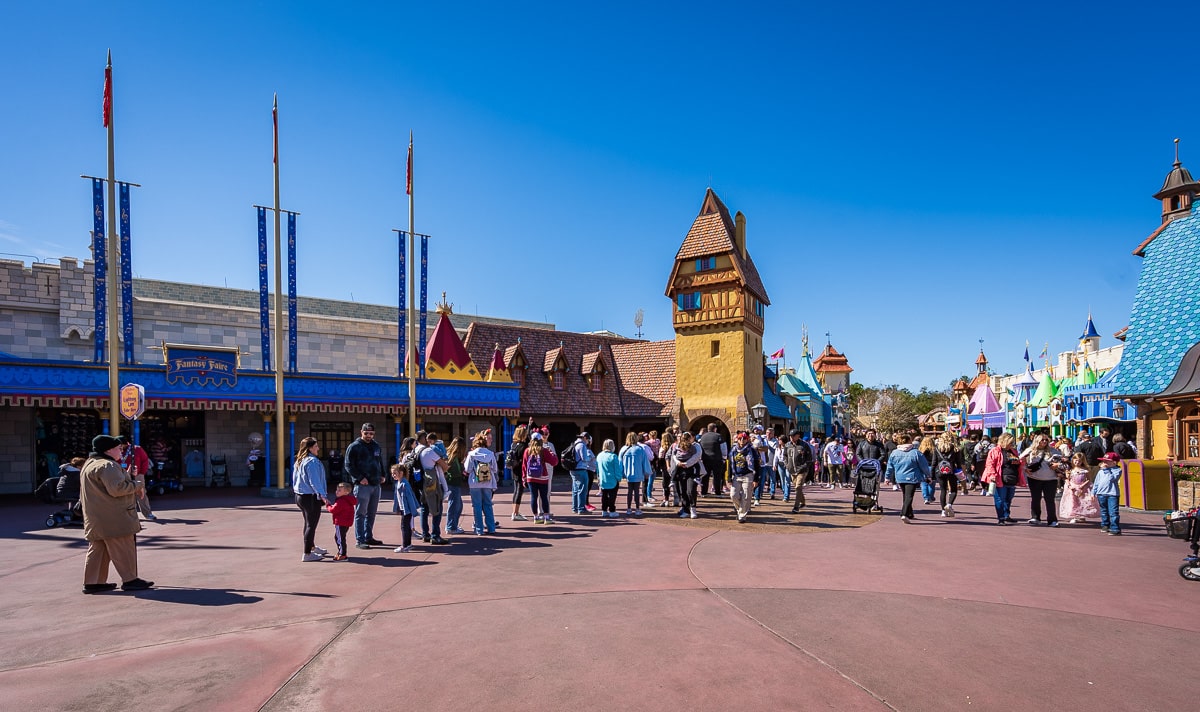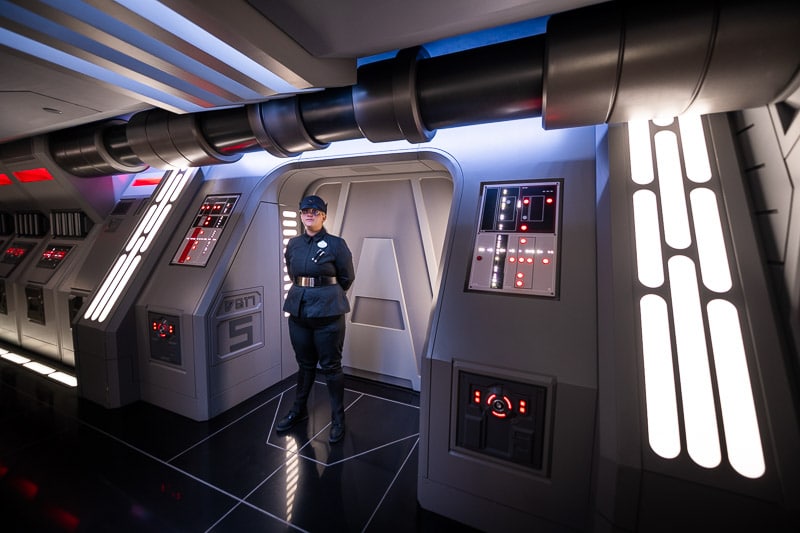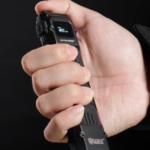
Effective immediately, Disney has expanded the duration of its Disability Access Service registration window for both Disneyland Resort and Walt Disney World. The latest DAS changes are now in effect on both coasts as of February 2025. This covers details of the extension, plus our commentary about the motivations for making this change and what else might be on the horizon.
As quick background, Disney overhauled DAS at Walt Disney World and Disneyland prior to the start of last summer. According to the company, the changes were due in large part to abuse, misuse, and proliferation of the program’s use–with issuances of DAS tripling from 2019 to last year. For more about the specifics of the overhauled DAS, see Disability Access Service (DAS) Changes at Walt Disney World FAQ.
We’ve been following this saga closely for the last several months, receiving reports from readers and hearing accounts of other guests applying for accommodations at Walt Disney World. It’s a highly sensitive subject that is very personal since it is, quite literally, make or break for some guests trying to experience Walt Disney World. There have been widespread reports of guests who previously had DAS being denied and advised to use alternative accommodations, some of which are new–or are revised and highlighted more prominently.
The make or break nature of the DAS changes and resulting denials are likely what led to the latest DAS policy change by Disney. As of February 1, 2025, both Walt Disney World and Disneyland Resort have extended the DAS registration window to 60 days prior to their park visit. Previously, the process could begin no sooner than 30 days prior to your visit. Here’s the new language:
“Guests can meet virtually with a Cast Member using live video chat to determine what services may be appropriate to support their visit to the theme parks, including DAS. You may have a pre-arrival conversation as soon as 60 days in advance of a park visit.”
The precise verbiage differs from page to page, but that’s the general gist of it. To the best of our knowledge, no language has changed aside from Disney swapping out instances of “30 days” with “60 days.” You probably get the idea without us going page by page to comb through the exact changes. It’s a fairly straightforward doubling of the application window.


The motivation for this change is also likely fairly straightforward: guest satisfaction.
The other recent DAS verbiage change to remove “only” from the eligibility criteria likely involved involvement from an army of attorneys, and even then, its motivations and outcomes are open to interpretation and debate. While we’ll never know for sure what prompted the “only” change or what result it’ll have on the ratio of approvals to denials, our view is that it’s fairly consequential in the quantity of DAS issued despite being only a single word.
With that, my best guess is that Disney wants to soften the perceived limitations in the policy among prospective applicants. To make it appear less harsh or stringent, to encourage guests other than those with developmental disabilities to apply for DAS. It could be a way of unofficially expanding the scope of eligibility without making any substantive changes to the policy or overhauling the program yet again.
By contrast, this is simply about making things easier for guests to plan around DAS and potentially cancel or modify their vacations if they do not receive DAS as an accommodation. Going from 30 to 60 days might result in a negligible increase in DAS applications, but it doesn’t materially change the equation on approvals. It’s all about reducing friction for guests who apply and are denied DAS.
One thing that repeatedly came up in the comments to the “only” change is that 30 days simply is not enough time given Walt Disney World’s vacation package cancellation policies. There and elsewhere, we’ve heard requests for at least 60 days and up to 180 days.


With the extension of DAS applications to 60 days, guests should be able to make an informed decision about their status and cancel if they’re denied and feel visiting Walt Disney World will not be feasible or desirable without the DAS accommodation. Guests who booked vacation packages who apply for DAS sufficiently early will be able to receive full refunds as a matter of policy.
Of course, this doesn’t change anything with the cancellation policies of third parties. Guests who book airfare, off-site hotels, rental cars, and so forth without flexible cancellation or modification policies inside of 60 days will still encounter the same issues. Given this, and the likelihood that vacation planners are largely booking travel more than two months in advance, this won’t be viewed as a perfect solution by some DAS applicants.
However, as we’ve mentioned previously, there’s a push-pull with all of these policy changes. If Disney were to extend the window to 180 days or offer more flexible cancellation policies to DAS applicants, this would create a greater burden on Cast Members and strain the system. It would induce more DAS applications, including those made in bad faith.
This is precisely why I doubt Disney will remove this step of the registration process: “Link valid theme park admission for each member of your party.” While some readers also requested that Disney not require the purchase of admission prior to applying for DAS, I’m skeptical that’ll ever happen. The result would be many more people testing the waters, seeing if they’re eligible for DAS without any actual commitment or intention to visit. I strongly suspect Disney would prefer to process refunds than expand applications in such a manner.


It’s easy for guests to say that an optimal policy is X or Y, because we’re looking at things in the vacuum of that one policy and what’s best for us. Disney has to analyze how all of its policies work in concert, and not introduce loopholes that guests could exploit. Because if there’s anything fans should understand at this point, it’s that even the smallest loophole will be found and abused.
This is why we previously mentioned that we strongly suspected Walt Disney World would issue refunds on accommodations, tickets, and other trip components–even those explicitly being ineligible for refunds–as a guest courtesy to those who had applied for DAS in good faith and been denied. Doing this without having it be the published policy is essential, otherwise it would be abused. Anyone who wanted a refund for anything would simply apply for DAS with the expectation they’d be denied, and then they’d request a refund.
In general, Cast Members have a lot of discretion over cancellations and refunds, even when the official policy says otherwise. Even outside of DAS, you can often receive a refund so long as you have a good reason and don’t have a track record of abusing the system in your guest file.


Suffice to say, the DAS application window being extended from 30 to 60 days is good news.
It appears that Disney is starting to listen. If there were a big dial on DAS policy intensity, Disney cranked it from the minimum to the maximum last year. The likely goal of ping-ponging from one extreme to the other was eradicating abuse, making it clear that the company was serious about DAS and would only grant it in the most extreme scenarios–and scammers need not even bother.
Now that word has gotten out that DAS is a serious policy and not just a rubber-stamp formality, it appears that Disney is taking that big DAS dial and reducing the intensity of the process. Our best guess is that this application extension and the “only” removal are not the only changes in the pipeline, and Walt Disney World is searching to find more of a middle ground. At least, that’s our hope. It doesn’t seem coincidental to have two changes in the span of a week after absolutely nothing for over 8 months.


As we’ve discussed previously, Disney needs to find this middle ground. Making measured and careful changes, and assessing the impact before further adjustments is the savvy approach.
On the one hand, there have been heartbreaking stories of DAS denials, many of which have gone viral for good reason. These have made it really seem like a more flexible and humane approach offering greater discretion to Cast Members is necessary. All of this strongly suggested that Disney went too far with the DAS overhaul, and needed some degree of relaxing its policies.
On the other hand, Disney needs to avoid relaxing its rules too much, or else risk a return to the rampant abuse that was fostered by hugely popular TikToks and influential social media groups. This has been exacerbated by a sense of entitlement, lack of shame, and Disney creating an incentive for DAS scammers by monetizing line-skipping via Lightning Lanes.
It’s a really difficult for Disney to balance this, but it needs to happen. The pendulum swung from one extreme to another, and there has been a lot of collateral damage among disabled guests who needed DAS and have been denied under the overly-stringent system. Cranking the DAS dial to its maximum setting hasn’t just eradicated the scammers, it has hurt guests who are actually disabled.


With that said, it’s fair to point out that there has been a positive impact on the guest experience for everyone: better-flowing lines and lower wait times. We discussed this at length in Here’s Why Standby Lines and Lightning Lanes Are Moving Faster at Walt Disney World.
The bottom line is that the DAS changes and, to a lesser extent, switch from Genie+ to Lightning Lane Multi-Pass are having a significant impact. It should go without saying that there are controversies, downsides, and unfortunate realities to the above. But the improvement to the flow of lines–standby and Lightning Lanes–as well as lower wait times is also undeniable.
In my view, this has been achieved very well–to the extent that there’s now excess ‘bandwidth’ in the system before it starts negatively impacting the standby line or Lightning Lanes (again). That’s one reason why Premier Pass hasn’t been a concern to us, and also why we think Walt Disney World can go a bit further in reducing the intensity on that proverbial DAS dial.


Assuming that capacity or bandwidth exists in the Lightning Lanes, it’ll be interesting to see what other policy changes Walt Disney World makes to DAS. As mentioned above, a big reader request was a longer application window–that’s now been granted. So what other tweaks would be meaningful to you without unduly disturbing the balance of things?
From the outside looking in, the big change we’d like to see is a “recalibration” of the interview process. We’ve heard from countless readers who have been denied, and there’s a word that has been used repeatedly to describe the process: interrogation. While we can appreciate how stressful this process is for Cast Members and the verbal abuse they take for disgruntled guests, there’s a better way of handling the process that feels less adversarial.
This wouldn’t be an actual public-facing policy change, as it would be almost impossible for the company to convey. Disney probably isn’t going to write in its FAQ that “the interview is now an interview, instead of a scene from Star Wars: Rise of the Resistance like it was the last ~8 months.” Somehow I don’t see the Disney Legal team approving that verbiage. Disney has an exemplary reputation for guest service and accommodations. It would be a shame to lose that as even more collateral damage to the DAS overhaul.
Planning a Walt Disney World trip? Learn about hotels on our Walt Disney World Hotels Reviews page. For where to eat, read our Walt Disney World Restaurant Reviews. To save money on tickets or determine which type to buy, read our Tips for Saving Money on Walt Disney World Tickets post. Our What to Pack for Disney Trips post takes a unique look at clever items to take. For what to do and when to do it, our Walt Disney World Ride Guides will help. For comprehensive advice, the best place to start is our Walt Disney World Trip Planning Guide for everything you need to know!
YOUR THOUGHTS
Thoughts on the latest change to DAS policies at Walt Disney World and Disneyland? Think this is about improving guest satisfaction, making DAS work better with cancellation policies, and reducing friction for DAS denials? Think that Disney is adjusting the DAS dial, reducing the intensity setting? Hopeful that further changes will be made that result in increased approvals for those who truly need DAS while keeping abuse low? Agree or disagree with our assessment of the changes or policy as a whole? Please try to stay on topic–we’ve noticed some of these DAS comments sections get heated and personal. Discuss the policy itself, not others’ use (or lack thereof) of it.










